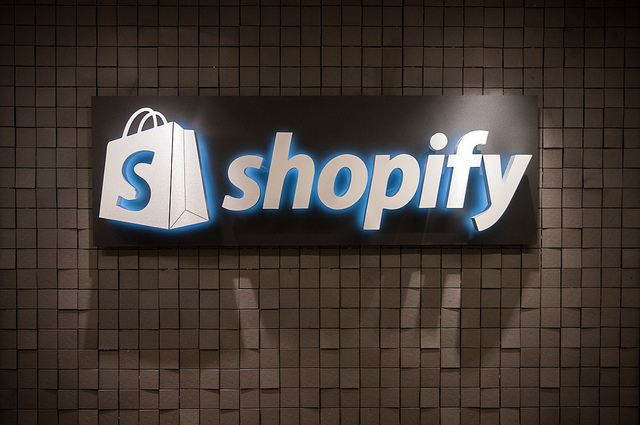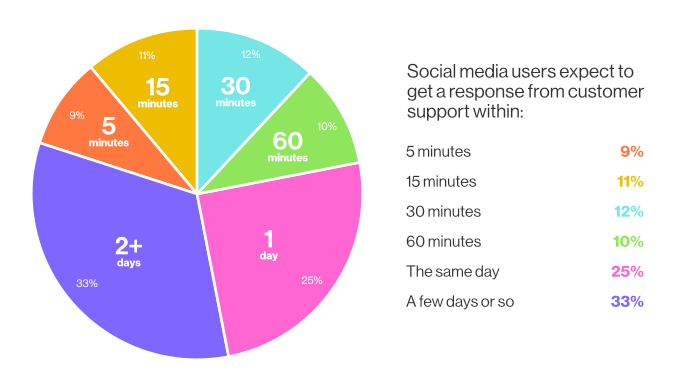
The world of business is constantly waiting on the precipice of the next great idea. It happened with Netflix, which took the world of media by storm with its streaming platform. It happened with Uber and Lyft, who galvanised an armada of self-employed drivers and became a contender for private hire firms, despite owning no cars.

Elements of a Strong Ecommerce Brand
It happened with AirBnB, who changed the way we looked at travel and tourism. Now, Canadian e-commerce company Shopify looks to be disrupting the way in which things in business and commerce are done. The company acts as an online retail platform, despite selling none of its own products. By offering opportunities for sellers to take a place on the site, Shopify connects those who want to sell with those who want to buy. So, what can other Canadian businesses learn from companies like Shopify?
How Did Shopify Become a Household Name?

6 Areas That Are Shaping Online Shopping
Despite rising to heights of popularity in recent years, Shopify actually started in 2004. The project came about when founder Tobias Lutke was unhappy with the e-commerce functionality on the internet, so decided to create his own with an open source framework. By 2010, they had launched the app, which allowed users to manage their stores from their mobiles. In August 2013, they created Shopify Payments, which allowed credit card payments to be made without third party interference. By August 2017, 600,000 vendors were using the site – with a combined gross merchandise volume of more than $55 billion. Shopify exemplifies what it means to be an e-commerce market leader. Their latest coup, in April 2018, was a partnership with courier company Deliv to ensure products were delivered the same-day, further streamlining the process of making a purchase. Shopify doesn’t just work for smaller businesses like an Etsy or an eBay store might. Larger companies, such as Budweiser, Penguin Books, The Economist, Gymshark, Red Bull, and Tesla Motors all have a shop on Shopify. Such strong brand names provide trust signals to potential buyers and sellers alike that the platform works. Shopify’s rise comes from a chance to break the norms and challenge the rules of how things have always been done, and its success shows that that kind of thinking can pay dividends.
Deals, Deals, Deals

Why Ecommerce Sites Need to be Trustworthy
One of the ways in which Shopify is able to bridge the gap between traditional e-commerce and a modern way of working is through the sales promotions they regularly have. Welcome packages, such as the Shopify free trial, offer a no obligation taster of the product or service. In Shopify’s case, the free trial doesn’t incur the fees that Shopify normally charges to use their platform and, instead, allows users to experience the benefits. Welcome packages are common in industries where consumers may be unsure of how exactly a service or product works; they are offered a discount initially in order to help them familiarise themselves with the offering. For example, telecoms companies Sky and Virgin both offer lucrative new deals for new customers, prompting people to make the switch between the two countless times. Many Online Casino’s offer a free version of their blackjack game to entice consumers and demonstrate how their version of the card game works, and a welcome bonus for those who decide the game is right for them. Welcome packages and free trials enable those who like to be able to continue and those who don’t a no-lose way to try it. Clothes retailer ASOS offers a 10% discount for new shoppers, attracting those who might be tempted to make their first purchase.
Social Media Marketing and Shopify

How to Use Social Media Effectively for Customer Service
One of the biggest bonuses for Shopify – and for its sellers – is that they act as brand ambassadors. While this gives sellers a level of respect and trust, it also gives Shopify some free publicity, especially when it comes to social media. Shopify’s use of social media marketing works as each seller is pushing customers towards Shopify. Imagine this for each of the 600,000 users of the app and Shopify itself has a lot of people linking towards it, which will likely lead to a high number of conversions. Other brands should be well aware of how effective social media can be. Look at American frozen beef sheet company Steak-umm’s, who have stimulated an army on social media through their tongue in cheek posts and pithy replies to add a human touch to their corporate image. Social media can also help automate customer responses through reviews.
Content Creation

Eight Excellent Reasons You Should Bring Your Offline Business Online
A key aspect of a social media strategy or any digital marketing effort is a solid content creation foundation. Content marketing is a prime way of engaging customers. Content creation for Shopify comes not just from the overarching brand that produces blogs and social posts about succeeding in business, but also from the sellers who use their own storefronts – both real and virtual – to amplify their businesses and, in effect, Shopify. Facebook is another giant of content creation, while they create very little of the content themselves. Using a strategy that implores customers themselves to be the ones creating the content enables businesses to monitor what is popular and what isn’t and use this to work out how to go forwards themselves. Having a solid content creation strategy can ensure a brand is not just on message with every communication they produce but that they are working on the other levels of digital marketing i.e. SEO. Having happy customers create the content for them is a boon for any major corporation.
Customer Engagement
Customer engagement encompasses a lot but hearing directly from customers through feedback is a key aspect of growing a business. Happy customers lead to more happy customers and testimonials from real people can go far for a business. As mentioned before, customer reviews can be crucial to a business in order to show other customers that the business is trustworthy and to help tip the balance when the customer is making a purchase decision. No company does reviews better than TripAdvisor, who have cornered the market as, essentially, an aggregate travel site that reviews destinations. Hotels etc. are implored to improve their service in order to achieve a good review. Brands that engage back with customers, as Shopify enables, remove the corporate mask that separates real people from companies. By dealing directly with customer queries and replying to responses across the board, publicly, the transparency works in the brand’s favor. Brands that actively engage customers are also more likely to make more sales and encourage repeat custom. Plus, positive engagements online can become positive word of mouth recommendations, further strengthening the trust signals that the brand possesses.

Who’s Right About Shopify Stock? The Bulls vs. the Bears
Shopify may be a gleaming star in the business world of Canada now but, in a year or two, there will likely be another norm-shattering business that takes the mantle. Innovation and business development is rife. The way to success has been paved by companies that have gone before, and the methods that they have employed in order to continue to grow and succeed. Whether this is through engaging with customers, producing strong marketing content, or simply offering the right deals at the right times, the roadmap for business success has already been created, so it’s only a matter of time before someone else finds it, follows it, and prospers.





